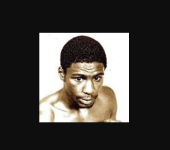
By Arne K. Lang
A second member of the fabled 1976 U.S. Olympic Team has died. Davey Armstrong, who spent his best days as a boxer chasing Olympic gold, passed away on Feb. 8 in his hometown of Puyallup, Washington, at age 64. Armstrong’s death came three days after the death of his Olympic teammate Leon Spinks.
Armstrong, frequently referenced as Davey Lee Armstrong, was a two-time Olympian, competing in the 1972 Munich Games as a light flyweight and then representing the U.S. in Montreal as a featherweight. He was well on his way to a third Olympiad when the U.S. pulled out of the 1980 games in Moscow in protest of the Soviet invasion of Afghanistan.
Armstrong started boxing at the age of 10 at the Tacoma Boys Club where coach Joe Clough developed a national amateur powerhouse. In addition to Armstrong, the club’s boxers included Sugar Ray Seales, Rocky Lockridge, Johnny Bumphus, and Leo Randolph. Seales and Randolph won Olympic gold medals and Bumphus may have joined that list if the U.S. hadn’t pulled out of the Moscow Games.
They had to doctor Davey Armstrong’s birth certificate to get him to Munich where he was eliminated in the second round by a boxer from Spain. Davey didn’t turn 16 until two months before the event.
At Montreal in 1976, Armstrong was out-pointed in the quarterfinals by Cuba’s eventual two-time gold medalist Angel Herrera. The verdict was split with two of the five judges favoring Armstrong and was widely considered a robbery.
Armstrong would recall that he stayed up for three or four hours crying after the match. He left Montreal without waiting to see how his teammate (and future brother-in-law) Leo Randolph would fare. He knew that his Cuban nemesis was bound to go on and win the gold and he could not bear the sight of it.
Between the two Olympiads Armstrong was badly hurt in an auto accident. In March of 1974, a van in which he was a passenger rolled over on a snowy Northern California highway. Armstrong suffered third-degree burns on both feet.
Between 1976 and 1980, as he awaited the return of an Olympiad that wouldn’t be there for him, Armstrong added another national title to his resume, winning the AAU nationals at 125 pounds where he defeated Ronnie Shields in the finals.
Armstrong turned pro in Detroit under the tutelage of Emanuel Steward whose success as a coach at the amateur level matched that of Joe Clough. As a pro, Armstrong was 24-3.
Steward pushed Armstrong to retire after Armstrong lost a 10-round decision to Greg Coverson on Oct. 10, 1982. Steward could see that Armstrong’s skills had atrophied. Hundreds of fights against top competition at the amateur level will do that to a boxer. “Davey had razor-sharp skills in 1976,” said Steward, looking back. “He was ready. He spent his best years chasing a gold medal.”
But Armstrong persevered and had three more fights before calling it quits, including what was arguably his best win as a pro, a 12-round decision over hometown favorite Nicky Furlano in Toronto in a bout billed for the North American Boxing Federation junior welterweight title. Furlano would go on to extend the great Aaron Pryor the 15-round distance with a world title at stake.
In retirement, Armstrong took courses in accounting and had a series of desk jobs for the city of Seattle. His entry in Wikipedia lists his post-boxing occupation as that of a bookkeeper.
Armstrong’s death follows closely on the heels of his Tacoma teammates Lockridge and Bumphus, both of whom had trouble adapting to life after boxing. Rocky Lockridge, a world title-holder in two weight classes, passed away on Feb. 7, 2019 at age 60. Johnny Bumphus, a world title-holder at 140 pounds, passed away on Jan. 31, 2020 at age 59.
An article in today’s Tacoma News Tribune says that Davey Armstrong died from complications of dementia. Owing to Covid restrictions, his funeral on Friday, Feb. 12, will be private.
May he rest in peace.
Check out more boxing news on video at the Boxing Channel

